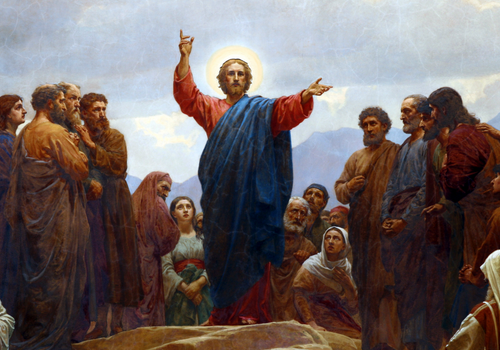For a long time I’ve looked to the apostle Paul as a model for what my ministry should be like. Paul was an itinerant preacher who was immensely gifted at crossing cultural barriers. He toured the ancient Mediterranean, publicly debating with scoffers and establishing new communities of disciples. He founded countless local assemblies based on the sheer power of the gospel message.
And then he left. Whether after days or months, Paul moved on. He appointed elders to care for the newly called out body of Christ in that city, and then he continued onward, to lay a foundation in the other cities and towns that had not yet heard the word.
Paul’s ministry is deeply compelling to me. He’s an heroic figure who endured incredible hardship and violent opposition in order to share the gospel widely and establish new church communities wherever he went.
I’ve often felt uneasy and disappointed with how little my own ministry so far has mirrored that of Paul’s. After all, I’ve done quite a bit of traveling in the last decade, but I haven’t done any miracles like Paul did. I haven’t started many new congregations. Measuring myself by Paul’s example, it’s easy to feel like a failure.
But then, I ask myself: Why have I been so fixated on Paul as a model for my ministry? Without a doubt, Paul was an amazing minister, but there is an even better example for me to look up to: Jesus!
Yeah, I know, it’s pretty obvious that I should look first to Jesus for inspiration. He is the founder of this whole God Movement, isn’t he? But, for a variety of reasons, I’ve often clung to Paul. I guess it feels safer to compare myself to him than to Jesus. Amazing as he was, he was still just a regular person like me, not the son of God.
It feels overwhelming to think about my ministry in relation to the life of Jesus. That’s like getting on my old touring bicycle for a casual ride and comparing my performance to Lance Armstrong. Totally inappropriate. I’m not even in the same league!
But it also makes a sort of sense, doesn’t it? If I’m trying to follow Jesus, why wouldn’t I seek to emulate him, first and foremost? Jesus was the central focus in Paul’s life and ministry. Shouldn’t it be the same for me?
This puts Jesus in a whole new light. Rather than looking at Christ’s ministry as exclusive and one-of-a-kind, what if Jesus is actually inviting me into his own journey? What if I embraced the kind of ministry that he modeled? As crazy as it sounds, Jesus himself said that in the power of his Holy Spirit we can do even greater things than he did during his time on earth.
That’s phenomenal, isn’t it? We can’t just leave the heavy lifting to Jesus. He invites us into the same work that he did.
With this in mind, I’m going to be studying Jesus’ life and message with new eyes. How did he carry out his ministry? What was Jesus’ model?
Right off the bat, I notice a few things:
Jesus didn’t plant churches. He gathered a tight circle of friends into a counter-cultural community that traveled with him wherever he went. In addition to this inner circle of itinerant Jesus groupies, he cultivated a dispersed network of friends and supporters throughout Judea.
Jesus developed a movement, not an institution. The disciples never set up a fixed headquarters, but rather moved from house to house, often in a clear attempt to avoid confrontation with hostile authorities. Jesus did not attempt to build up a stronghold in a single location, but actively dispersed emerging leaders to spread the movement in their own social networks. (For examples of this, see the Samaritan woman and the Garasene demoniac.)
Jesus healed people. This was a huge part of what Jesus did. In fact, it would probably be accurate to say that Jesus’ job description was healer and teacher, in that order. During the three years of his ministry, this seems to be what he did all day long. When was the last time you saw someone healed at church?
Jesus prophetically confronted injustice and corrupt institutions. As a result, he came under deadly attack by the powers that be. Defying the death machine, Jesus refused to compromise with the status quo. Instead, he taught his disciples a new and living way, completely at odds with the dominant culture.
There’s a lot more to be said here, but I’d like you to join me in this conversation. What do you see as the marks of Jesus’ ministry? How can we as modern-day disciples follow in his footsteps, orienting our lives around the reign of God that he proclaimed and inaugurated?
